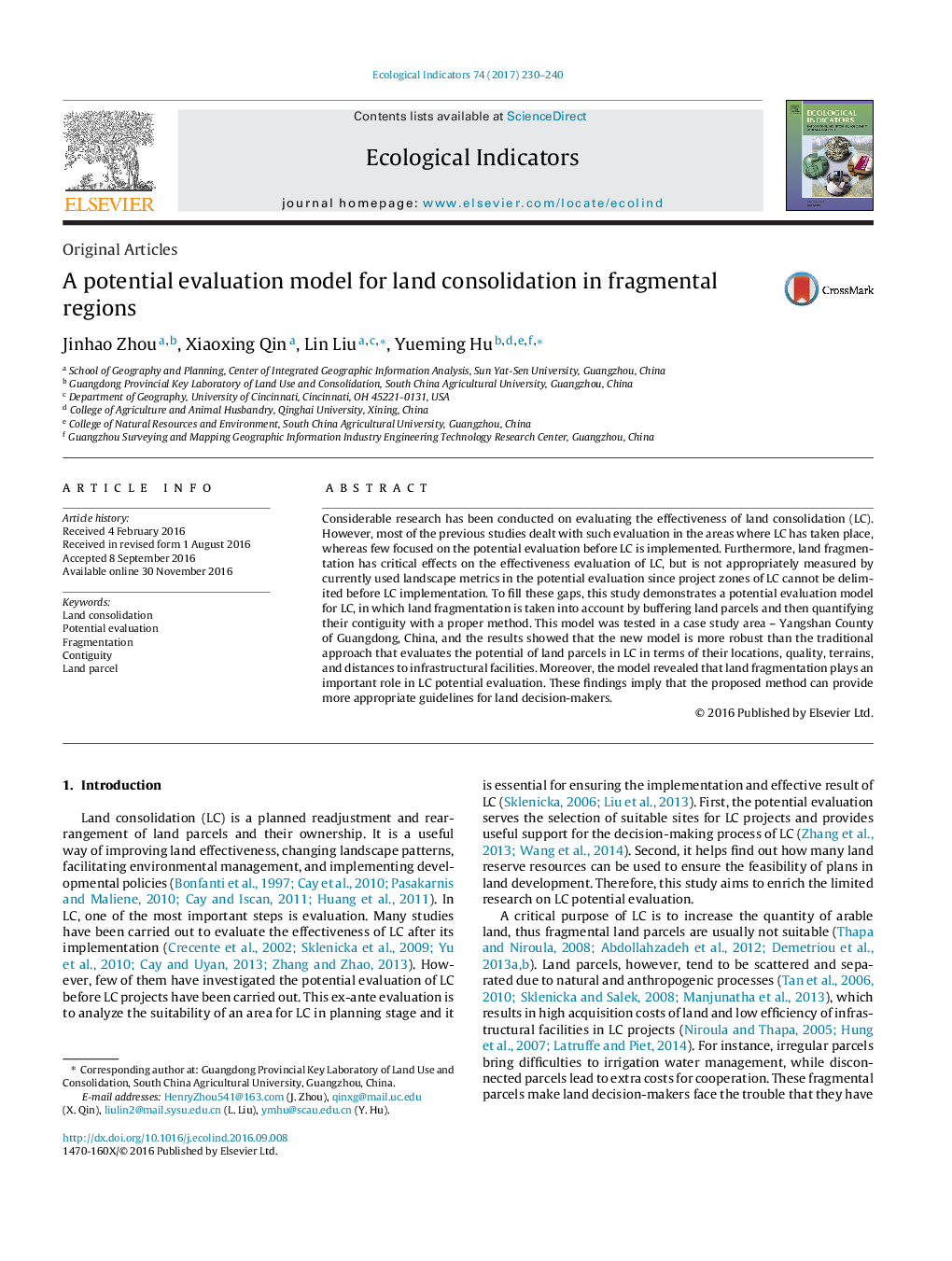| Article ID | Journal | Published Year | Pages | File Type |
|---|---|---|---|---|
| 5741851 | Ecological Indicators | 2017 | 11 Pages |
Considerable research has been conducted on evaluating the effectiveness of land consolidation (LC). However, most of the previous studies dealt with such evaluation in the areas where LC has taken place, whereas few focused on the potential evaluation before LC is implemented. Furthermore, land fragmentation has critical effects on the effectiveness evaluation of LC, but is not appropriately measured by currently used landscape metrics in the potential evaluation since project zones of LC cannot be delimited before LC implementation. To fill these gaps, this study demonstrates a potential evaluation model for LC, in which land fragmentation is taken into account by buffering land parcels and then quantifying their contiguity with a proper method. This model was tested in a case study area - Yangshan County of Guangdong, China, and the results showed that the new model is more robust than the traditional approach that evaluates the potential of land parcels in LC in terms of their locations, quality, terrains, and distances to infrastructural facilities. Moreover, the model revealed that land fragmentation plays an important role in LC potential evaluation. These findings imply that the proposed method can provide more appropriate guidelines for land decision-makers.
